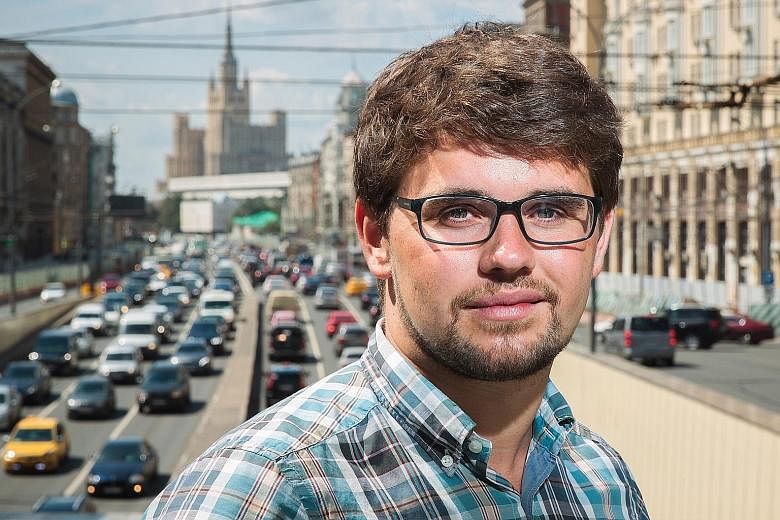Raxel Telematics, which makes devices that track drivers' behaviour, has sealed deals with two Singapore insurers and will start offering the country's first pay-how-you-drive motor insurance policies from October.
Insurers have long used group-based statistics, such as age and driving experience, to determine a driver's risk profile and the premiums he pays.
But from October, drivers who plug a Raxel dongle into their car or install the Raxel mobile app on their phone could get lower premiums, depending on how safe a driving score they get at the end of each trip they make.
The scores take into account factors like how often drivers speed or make harsh manoeuvres, how smoothly they brake, and how often they drive between 11pm and 6am, when reaction times are statistically duller.
These data points are picked up by sensors and transmitted wirelessly to Raxel's cloud for analysis.
Vehicle telematics is not new - insurer Progressive put its first behaviour tracking devices on trial in 1998 - but telematics-based insurance policies really kicked off only a few years ago as technology costs fell and smartphone penetration rose, Raxel chief executive Dmitry Rudash told The Straits Times.
"In just a few months, we have created a pipeline the size of several million dollars, and have already signed partnership deals with insurance and transportation companies," said Mr Rudash yesterday.
Raxel, which was founded in 2013 by a team of Russian physicists and mathematicians, opened its first overseas headquarters in Suntec City this month, lured by Singapore's status as a transport hub.
In May, insurer AXA and ride-sharing app Grab launched a pay-as-you-drive policy for Grab drivers, which varies based on their mileage. Raxel takes this further.
"Our policy price depends not only on mileage, but how, when and where you drive," said Mr Rudash.
Insurers can also use the predictive technology to refuse to sell policies to risky drivers. Mr Rudash's data in Russia and Ukraine shows that 7 per cent of drivers are involved in three accidents in one year.
"The best idea is not to sell insurance to these guys. They can be insured by another company."
In Russia and Ukraine, Raxel has also linked up with employers in the ride-sharing industry to make the roads safer.
"There are 25 to 30 per cent fewer accidents when you incorporate a driver's safety rating into his rewards system," he said.
Raxel, which has 28 staff in Russia and Ukraine, made close to US$1 million (S$1.34 million) in revenue last year. Its clients include AXA and Liberty Mutual. The Singapore office plans to hire five people by the end of the year, including one or two machine-learning analysts who study algorithms that can make predictions on data.


